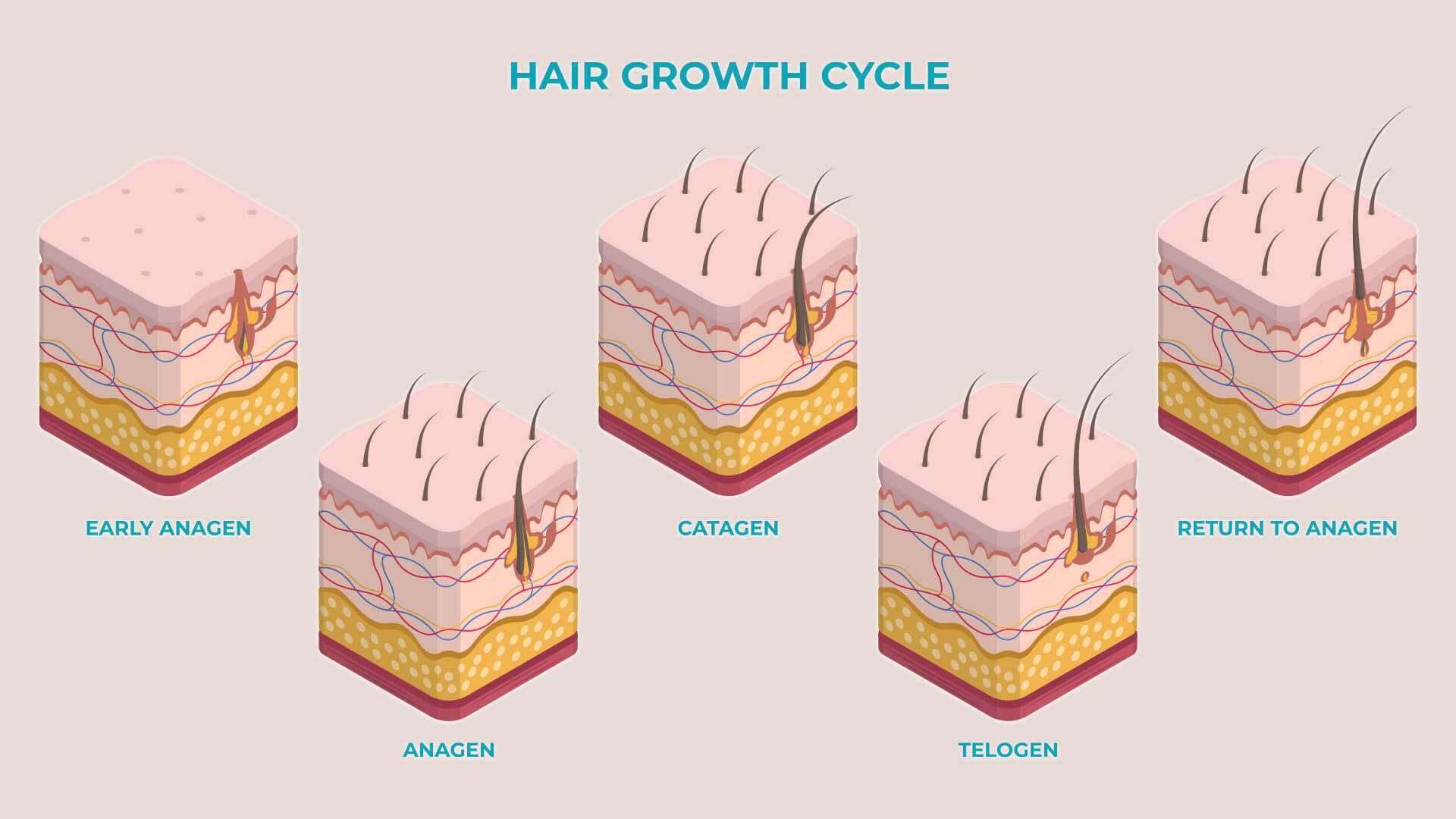How Long Does It Take for Hair to Grow?
Hair growth is a natural process that varies from person to person. Factors such as genetics, age, diet, and overall health all play a role in how fast or slow your hair grows. Understanding the hair growth cycle and the factors influencing it can give you insight into what to expect when it comes to hair growth.

The Hair Growth Cycle
Hair growth occurs in a cyclical pattern with three main stages:
- Anagen (Growth Phase):
- This is the active growth phase where hair follicles produce new hair.
- The anagen phase lasts between 2 to 7 years, depending on genetics.
- Hair grows approximately 1 cm (0.4 inches) per month, or about 6 inches per year on average.
- Catagen (Transition Phase):
- This short phase lasts about 2 to 3 weeks.
- Hair stops growing and detaches from the blood supply, preparing for shedding.
- Telogen (Resting Phase):
- This phase lasts about 3 to 4 months.
- Hair rests before falling out and making way for new hair growth.
How Long Does It Take for Hair to Grow Back?
The time it takes for hair to grow back depends on the cause of hair loss and individual factors. Here are some common scenarios:
- Normal Hair Growth:
- For healthy individuals, hair grows about 0.3 to 0.5 mm per day, or 1 to 1.5 cm per month.
- After Haircut:
- Hair grows at the same rate as it would naturally: around 6 inches per year.
- After Shaving:
- Shaving doesn’t affect the growth rate, and new hair will grow back at the normal pace.
- After Hair Loss Due to Stress or Illness:
- Hair usually starts regrowing within 3 to 6 months once the underlying issue is resolved.
- After Chemotherapy:
- Hair typically begins to regrow about 3 to 6 months after treatment ends, although the texture and color may initially differ.
- After Hair Transplant:
- Transplanted hair usually starts growing about 3 to 4 months after the procedure, with full results visible after 12 to 18 months.
Factors Affecting Hair Growth
Several factors can influence how quickly your hair grows:
- Age:
Hair growth slows as you age. - Genetics:
Your genetic makeup determines the length of your anagen phase, influencing how long your hair can grow. - Diet and Nutrition:
A diet rich in protein, iron, vitamins (such as Biotin and Vitamin D), and omega-3 fatty acids promotes healthy hair growth. - Health Conditions:
Conditions like hypothyroidism, anemia, and alopecia can slow hair growth or lead to hair loss. - Hair Care Habits:
Excessive heat styling, chemical treatments, and improper hair care can damage hair and inhibit growth. - Stress:
Chronic stress can push hair into the telogen phase prematurely, leading to hair shedding (telogen effluvium).
Tips to Promote Hair Growth
- Maintain a Balanced Diet:
Include foods rich in protein, iron, zinc, and vitamins. - Stay Hydrated:
Drinking plenty of water keeps your scalp healthy and hydrated. - Massage Your Scalp:
Stimulate blood circulation to hair follicles with regular scalp massages. - Use Gentle Hair Products:
Avoid harsh shampoos and opt for products designed for your hair type. - Avoid Heat and Chemical Damage:
Minimize the use of heat tools and chemical treatments. - Take Supplements:
If your diet lacks certain nutrients, consider supplements like biotin or omega-3 fatty acids after consulting a healthcare professional.
How to Measure Hair Growth Progress
To track your hair growth, measure the length of a specific strand at the start and monitor it monthly. Keeping a hair journal with photos can help you visualize the progress.
If your hair isn’t growing as expected or you’re experiencing excessive hair loss, consult a dermatologist or trichologist for professional advice.
